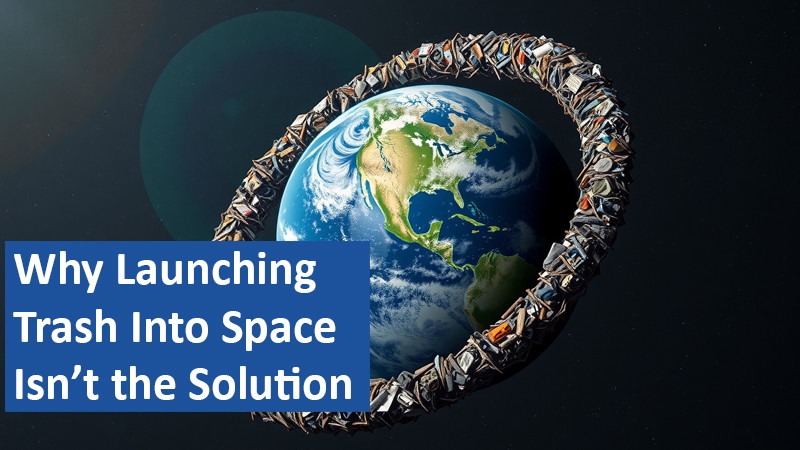The world produces over two billion tons of waste annually, with only a fraction being recycled. As landfill space diminishes and environmental concerns mount, some have suggested launching garbage into space as a bold alternative. While intriguing, this concept faces enormous financial, environmental, and logistical hurdles that make it impractical.
By Julian James
The Prohibitive Costs of Space Waste Disposal

The staggering expense is the greatest obstacle to launching waste into space. Even with reusable rockets like SpaceX’s Falcon 9, transporting garbage to low Earth orbit costs approximately $1,200 per kilogram. The logistical challenges of consolidating billions of tons of trash and transporting it to launch sites further amplify these costs. Experts like aerospace engineer John L. Crassidis argue that such an operation is not only unaffordable but also technically unfeasible with current technology.
Environmental Impact of Rocket Launches
Rocket launches significantly harm the environment by releasing large quantities of greenhouse gases and aluminum oxides that damage the ozone layer. A single Falcon 9 launch emitted 116 tons of carbon dioxide in just the first three minutes of flight. As rocket launches increase in frequency, emissions could rise dramatically, worsening climate change. This reality undermines the concept of a cleaner planet through space-based waste disposal.
The Threat of Space Debris
Adding garbage to Earth’s orbit would exacerbate the growing problem of space debris. Low Earth orbit is already congested with satellites and fragments, heightening the risk of collisions. The Kessler syndrome, a scenario where cascading collisions render the orbit unusable, looms as a serious threat. Improperly launched trash could also fall back to Earth, causing potentially hazardous consequences.
Why Other Celestial Destinations Fall Short
Suggestions to send waste to the Moon, Mars, or the Sun are equally flawed. Using the Moon as a landfill risks contaminating a key site for exploration and potential colonization. Mars, considered a future human habitat, must remain unpolluted for its scientific and habitable potential. The Sun, while seemingly ideal, requires immense energy to reach, making it financially unviable.
Launching trash into space may capture the imagination but fails to offer a realistic or sustainable solution. Instead, strategies like recycling, waste reduction, and international cooperation are vital to tackling Earth’s waste crisis.
Based on information from www.dailygalaxy.com and own research.